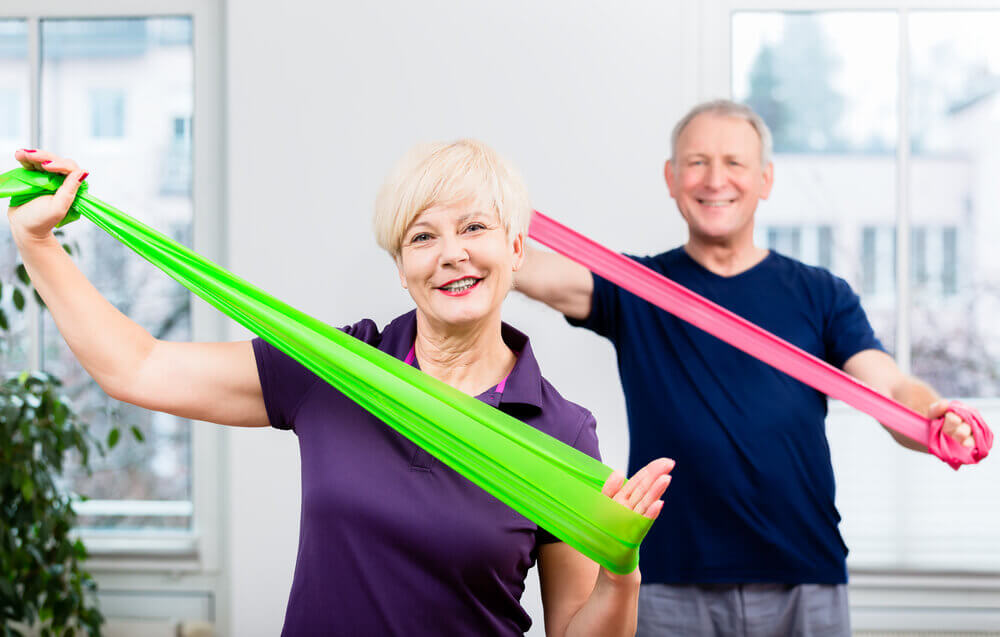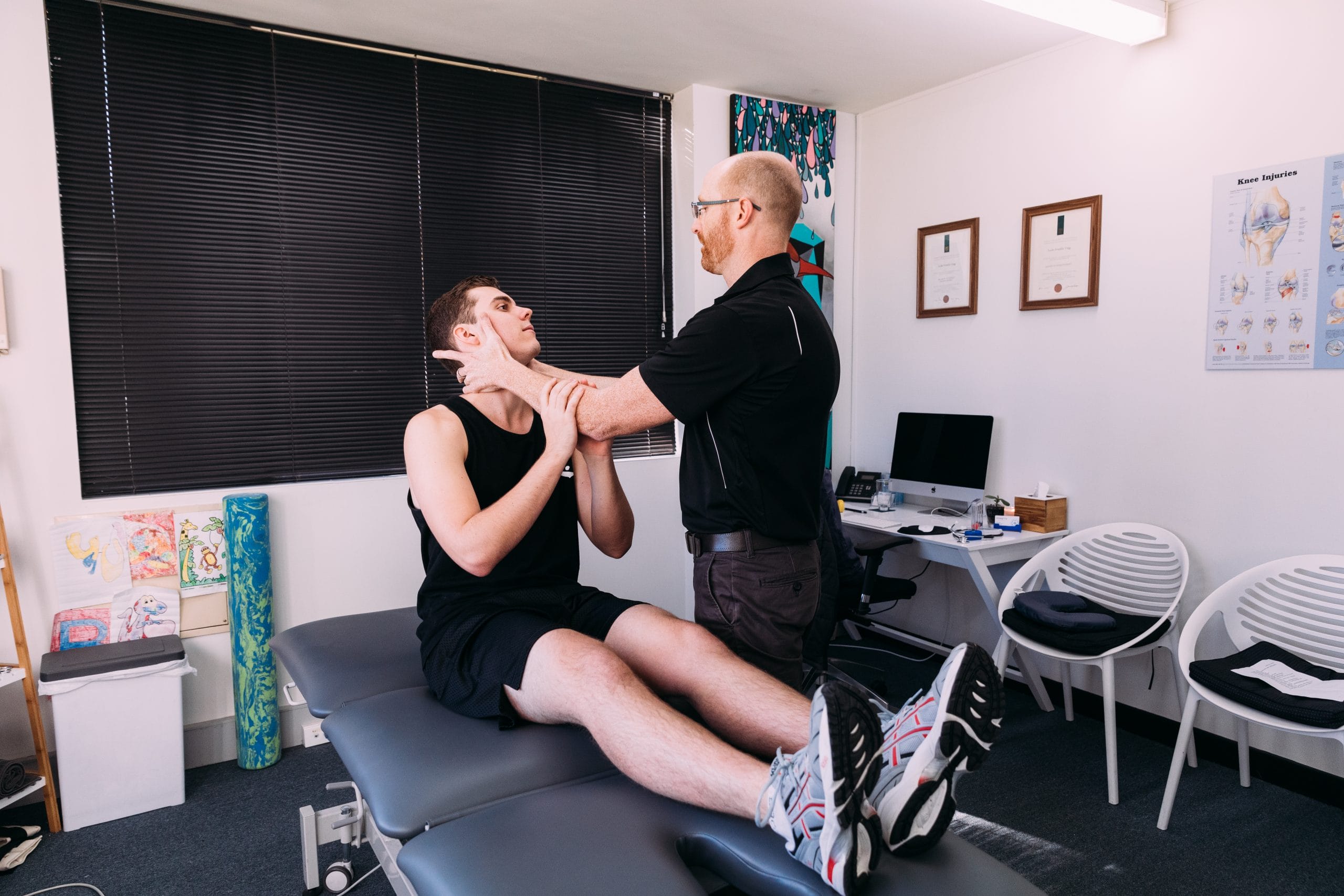
Remaining physically active is an essential part of a healthy lifestyle, particularly as we age. For a variety of reasons, many elderly people with or without health conditions reduce their engagement in physical activity. This can lead to early physical decline, increased risk of injuries or hospitalisations, and a reduced quality of life. Physiotherapy can benefit people of all ages, but in particular provides many benefits for the ageing population. Below are some ways physiotherapy can help you to stay mobile as you age.
Managing Chronic Conditions
Whatever the capacity might be within the community, physiotherapists are experts at managing chronic health conditions. Physiotherapy provides a safe and effective way to exercise and maintain mobility for those with chronic disease. It may be done through independent exercise, or a group class; however, physiotherapy increases physical activity in a safe and fun way which has many benefits for older adults, including:
- Reducing the decline in mobility
- Maintaining the ability to perform daily activities
- Improving muscle strength, control and balance
- Reducing the risk of falls or injuries
- Improving overall mood
- Maintaining social connections
- Increasing the patient’s sense of wellbeing
- Improving quality of life
Falls Prevention
Almost all of us can be at risk of falling occasionally. However, for the older population, falls are more common and can cause significant injury. Approximately 1 in 4 people over the age of 60 experience a fall each year leading to hospitalisation. This number increases to 1 in 3 for those over 65.
Falls do not only cause injury. Falls can cause a loss in confidence as well as increases in anxiety, a tendency to withdraw and feeling a loss of independence. Physiotherapists are at the forefront of falls prevention in older adults. Physios consider a variety of risk factors such as:
- Balance
- Vision
- Strength
- Cognition
- Walking aids
- Footwear
- Environmental hazards
This allows the physiotherapist to tailor individual exercise programs for each patient which involves strength training, environmental modifications, walking and gait re-education and the correction of balance components. Physio can also refer on to other practitioners to ensure a multidisciplinary approach.
Pain Management
A large proportion of the elderly population experience ongoing pain. Although it may seem reasonable to reach for medication immediately, the best pain management takes a multi-faceted approach. This is where physiotherapy can help.
Physiotherapists have extensive knowledge in pain management. They are able to perform pain assessments and recommend the best treatment techniques including a range of manual therapy treatment techniques, specific exercise prescription, health advice and education. Chronic Pain Physios prescribe specific exercises for the patient to help with ongoing pain. As well as this, physiotherapists empower their patients by providing them with the knowledge and skills to manage their own pain at home.
Cardiovascular Health And Diabetes
Another great benefit of physiotherapy for older adults is its ability to improve circulation by strengthening cardiac output and decreasing blood pressure. As a result, this helps to provide protection from cardiovascular disease and reduces the threat of congestive heart failure.
Diabetes is a common condition particularly amongst the aging population. Nearly 1 in 5 people over the age of 75 suffer from diabetes. Exercise is known to reduce the risk of developing diabetes. For those patients already suffering from diabetes, exercise helps to control blood sugar levels.
Rehabilitation After An Accident
Many elderly people have concerns about not feeling as steady on their feet as they used to. They may find it difficult to cope with stairs and other obstacles. As the muscles weaken, joints stiffen and coordination reduces, older people are at a greater risk of falls or injuries that can lead to a long recovery time.
Physiotherapists are very experienced at ensuring an effective recovery from many types of accidents by helping patients to regain physical strength and mobility. The exercises taught in each session with your physiotherapist aim at providing long term prevention of falls or accidents.
Avoiding Surgery
Physiotherapy is an effective way to heal from an injury and reduce pain without the need for surgery. However, even if surgery is needed, physio can also provide benefits both before and after the procedure. Preparing for surgery by strengthening your body before hand, often known as prehabilitation, will reduce recovery time in many cases.
Staying Active And Maintaining Independence
Even if you were very active in your younger days, the aging process can slow you down. However, with physiotherapy you can remain active and maintain your independence for as long as possible with minimal pain. Hip and knee pain are common as people age, and physiotherapy uses techniques to keep the joints mobile, reducing pain as a result.
Another important aspect of physio as you age, is maintaining your independence and quality of life. Physiotherapists teach their patients how to move properly when walking, playing sports and other daily activities. Seniors who wish to remain in their homes can benefit from physiotherapy because it improves their overall function both mentally and physically. Another key aspect is strength. The stronger you are, the less likely you are to suffer from an injury or fall. If you are unfortunate enough to suffer from a fall however, physio can reduce the time it takes to recover, as well as helping to restore your confidence.
Final Thoughts
Physiotherapy involves much more than just rehabilitation from an accident. You don’t have to be injured or in pain to see your physio. Physiotherapists can help people from all walks of life and all ages, regardless of what ailments they may have. For those entering their older years, physiotherapy offers an effective way to remain active and get the most out of life. Physiotherapy helps you to remain mobile and healthy throughout your life.




